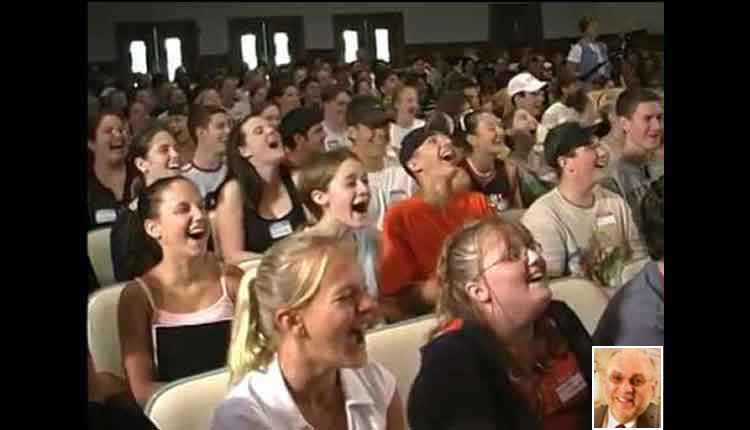Music advocacy is a hot topic-of-discussion for administrators, parents, teachers, and everyone keenly interested in creating the most potent curriculum possible for today’s students. Breakthrough research continues to point to the study of music as a key component to personal success-development in every facet of personal and professional life. The positive impact of music is no longer a hypothetical theory but is based on ongoing studies that clearly demonstrate the popular theme: music makes the difference.
In the mid-90’s the work of Dr. Gordon Shaw and Dr. Frances Rauscher (University of California – Irvine) drew the attention of the national media by showing the neurological impact of listening to music and performing music. Recently, studies have evidenced the health/wellness benefits enjoyed as a result of making music. The scientific world and the artistic community are working in tandem to explore the unlimited power-of-music at it relates to human development. More importantly, it is apparent this is only the beginning of the good news to come.
What relevance does music advocacy have to your life? We all seek “betterment” in our lives, whether it is in our workplace, our schools, our communities, or our social environments; there is an innate desire for improvement. It is no accident we find a strong correlation between the educational, economical, and emotional well being of individuals and the link to music participation. We now understand music is not reserved for a select group of talented individuals, but it is an expressive language available to all who are interested listening, playing, singing and creating music; everyone is a candidate to enjoy the rewards of music.
The good news is: “We have much good news about the extraordinary benefits of studying music.” Now we must take action to get this compelling data to everyone.
All too often we think if we have a respectable band, choir, and/or orchestra in our local school, a good membership in the church choir, or an active community band/orchestra/choral society, we are not in need of music advocacy. Complacency is the enemy. We must constantly wave the flag to insure the interest of music in our communities.
It is easy to read the material and be convinced of the importance of music, however the task of music advocacy outreach often falls to the bottom of the “to do” list. Your own life has been influenced by music. You have firsthand knowledge of the value of music as it relates to every aspect of your lifestyle. You know the discipline of music has a direct translation to the disciplines required for a happy, healthy life. You understand what a positive difference music has made in your life. The next step is to bring this awareness to others; to give them the gift of music. All-too-often we find ourselves saying, “That’s true, but I’m just one person, and I can’t make a difference.” It is simply not true; the fact of the matter is, we need as many “one persons” as we can get to accept the challenge and spread the good news. Perhaps music advocacy isn’t as much “what we do” as it is “who we are.” We don’t just believe in the fundamental value of music, we know music is an essential element of humankind. We must join hands and tell the story, so our children, our grandchildren, and generations to come will have music in their lives.
We are one of the few nations that has successfully integrated music education as a choice in the daily school curriculum; music is not just for the “chosen few”, but we can embrace all students availing them to the intrinsic value of music. Music for the sake of music; there is no substitute, and without the understanding of the immeasurable benefits of music learning, music listening, and music making, many people simply will never tap that creative part of their artistic potential. We must educate to perpetuate the theme: music for all.



